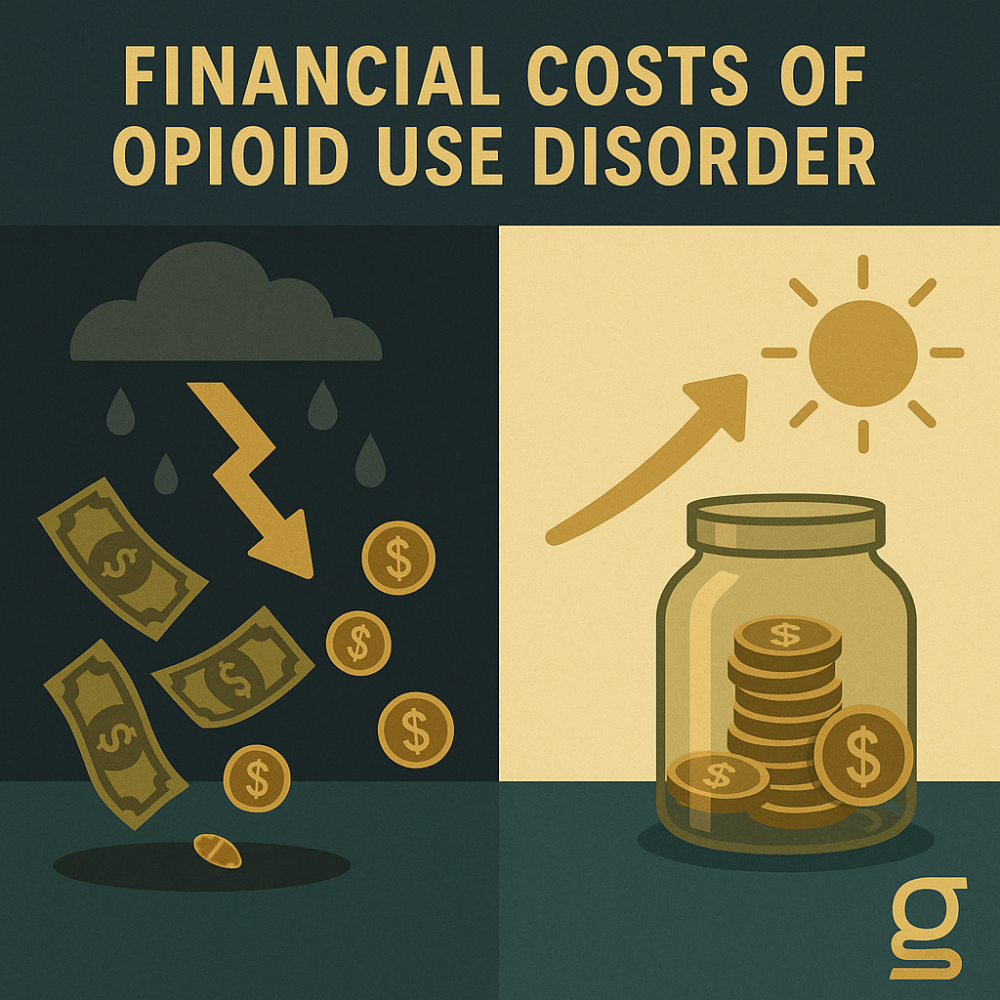The Dangers of Mixing Librium & Alcohol
When it comes to managing anxiety, Librium (the brand name for chlordiazepoxide) has been a staple in the medicinal arsenal of healthcare providers. As a benzodiazepine, it operates by calming the central nervous system and easing the symptoms of anxiety and withdrawal in patients who need it. Yet, when taken in combination with alcohol, the effects of Librium not only enhance but also herald a suite of dangerous and potentially life-threatening consequences.
Understanding the Effects of Alcohol on the Brain and Body
To appreciate the full scope of the risks involved with mixing Librium and alcohol, it’s essential to understand how alcohol affects the brain and body independently. Alcohol is more than just a mood-altering substance; it’s a powerful central nervous system depressant with a wide range of effects that can compromise one’s health and safety.
Alcohol’s Effects on the Brain
Upon consumption, alcohol rapidly enters the bloodstream and reaches the brain. It interferes with the brain’s communication pathways, affecting how the brain looks and works. These disruptions can change mood and behavior, making it harder to think clearly and move with coordination. Here’s a closer look at alcohol’s impact:
- Cognitive Impairment: Alcohol can impair brain function, leading to poor judgment, reduced reaction time, and loss of balance and memory, even after a few drinks. Chronic drinking may lead to permanent brain damage and neurodegenerative diseases.
- Emotional Volatility: Drinking can exaggerate states of emotion, from aggression to depression, and even small amounts of alcohol can lower inhibitions and promote impulsive behavior.
- Dependence and Addiction: Over time, excessive alcohol consumption can lead to the development of tolerance, dependence, and alcoholism as the brain adapts to its depressant effects.
Alcohol’s Effects on the Body
While the brain is a primary target for alcohol’s effects, the rest of the body is affected as well:
- Liver Stress: The liver metabolizes alcohol, but excessive drinking can overwhelm this process, leading to fatty liver, hepatitis, fibrosis, and cirrhosis.
- Heart Disease: Habitual heavy drinking can damage the heart, leading to complications such as cardiomyopathy, arrhythmias, high blood pressure, and even heart attacks.
- Pancreatitis: Alcohol causes the pancreas to produce toxic substances that can eventually lead to pancreatitis, a dangerous inflammation, and swelling of the blood vessels in the pancreas.
- Immune System Downturn: Alcohol can weaken the immune system, making the body more susceptible to diseases. Chronic drinkers are more likely to contract diseases like pneumonia and tuberculosis than people who do not drink.
When Librium is introduced into a body already contending with these alcohol-induced stressors, the potential for negative outcomes increases significantly. The sedative effects of alcohol paired with Librium can compound, leading to a dangerous decrease in vital body functions. It’s a cocktail that the body is ill-equipped to handle, one that can slow respiratory and cardiac systems to a life-threatening pace.
Understanding Librium
Librium, known generically as chlordiazepoxide, is a benzodiazepine that is commonly prescribed for the treatment of anxiety disorders and acute alcohol withdrawal symptoms. Its therapeutic effects stem from its ability to enhance the effect of the neurotransmitter GABA (gamma-aminobutyric acid) in the brain, which is responsible for reducing the activity of neurons that cause stress and anxiety.
Therapeutic Uses of Librium:
- Anxiety Disorders: Librium is prescribed for the short-term relief of anxiety symptoms.
- Alcohol Withdrawal: It helps in the management of acute alcohol withdrawal symptoms, easing the transition to sobriety.
- Preoperative Apprehension: Librium can be used to alleviate apprehension and anxiety before surgical procedures.
Common Side Effects:
While Librium is effective for its intended uses, it comes with a spectrum of potential side effects. The most common ones include:
- Drowsiness or Sedation: This is the most common side effect, given the drug’s CNS depressant nature.
- Dizziness: Patients may experience light-headedness or a spinning sensation.
- Confusion: Especially in higher doses or in older adults, confusion can be a significant side effect.
- Constipation: Digestive disturbances are not uncommon with benzodiazepines.
- Dry Mouth: Patients may notice a decrease in saliva production.
These side effects, while manageable on their own, can create a serious hazard when combined with other CNS depressants like alcohol, which similarly dampens CNS activity.
Severe Side Effects and Dependency Issues
Beyond these common side effects, Librium use can also lead to more serious health concerns, particularly with long-term use. These include:
- Dependency and Withdrawal: Like other benzodiazepines, Librium can be habit-forming, leading to physical dependence and withdrawal symptoms upon cessation.
- Overdose Risk: In cases of overdose, Librium can cause severe sedation, respiratory depression, and even death, particularly when combined with other depressants.
- Increased Sensitivity in Elderly: Older adults are more susceptible to the sedative effects of benzodiazepines, raising their risk of falls and cognitive impairment.
Given these potential side effects, Librium must be prescribed by a healthcare provider who can closely monitor the patient’s response to the medication. This is especially critical for individuals who have a history of substance abuse or who consume alcohol regularly, as the risks associated with combining alcohol and Librium can be amplified.
While Librium is an effective medication for many, it’s not without its risks. Understanding these risks, including the common and severe side effects, can help patients use Librium safely. Again, it’s crucial to emphasize that combining Librium with alcohol not only exacerbates these risks but also introduces new dangers that could have lasting implications for one’s health and well-being.
Understanding the Interaction Between Librium and Alcohol
Both Librium and alcohol are classified as central nervous system (CNS) depressants. This means they work by slowing down brain activity, leading to a reduction in anxiety, inhibition, and feelings of relaxation. However, this sedative effect also extends to other vital areas of CNS control, including motor coordination, cognitive function, and decision-making processes.
When alcohol is consumed, it can exponentially increase the nervous system side effects of chlordiazepoxide, such as dizziness, drowsiness, and difficulty concentrating. The synergistic impact of combining these two substances can lead to an alarming impairment in thinking and judgment. Users may find themselves in a state of enhanced sedation, unable to perform tasks requiring mental alertness, such as driving or operating machinery – tasks that, when performed under the influence, could result in dire outcomes.
The Risks and Why It’s Critical to Avoid Mixing
The primary danger lies in the unpredictable nature of the drug interaction. Some individuals might experience severe drowsiness or dizziness, while others could be affected by impaired cognitive abilities. This can lead to dangerous situations where one’s ability to judge and respond to environmental stimuli is compromised. The risk of accidents and injuries skyrockets when these faculties are impaired, not to mention the increased likelihood of engaging in risky behaviors without full control of one’s faculties.
Moreover, the sedative effects of Librium combined with alcohol can lead to severe respiratory depression, where the body’s ability to breathe adequately is compromised. This dangerous duo can slow down breathing to perilously low levels, leading to hypoxia (lack of oxygen to the brain), which can result in coma or even death.
Medical Advice and Precautions
It is crucial that individuals prescribed Librium avoid the consumption of alcohol altogether. Adherence to the recommended dose of chlordiazepoxide is equally important, as is the avoidance of any activities that demand a high level of mental alertness until it’s clear how the body responds to the medication.
If you are currently being treated with Librium or any other benzodiazepine, and you have concerns about alcohol use, it is imperative that you speak with your healthcare provider. Transparency about your alcohol intake allows for tailored medical advice, ensuring your safety while being treated with these powerful medications.
Gallus Can Help
While Librium can be a beacon of relief for those struggling with anxiety and alcohol withdrawal, it is imperative to be mindful of its powerful effects, especially when mixed with alcohol. Understanding the risks and side effects associated with Librium underscores the need for careful, supervised use of this medication. Should you find yourself or a loved one navigating the challenging waters of alcohol dependence, remember that there is a beacon of hope and help available.
At Gallus Medical Detox Centers, we understand the complexities of addiction and offer a dignified, patient-focused path to recovery through medically supervised detoxification. Our individualized approach is backed by medical expertise, ensuring a safe and respectful transition towards sobriety.
Taking the first step toward recovery can be daunting, but you don’t have to do it alone. We encourage you to utilize our self-assessment tool to gauge the level of care you might need. The time to seek support is now. Contact Gallus Medical Detox Centers today at 866-272-5978 and embark on your journey to reclaim your life. Let us accompany you on this path to a healthier, substance-free future.
FAQs About Librium and Alcohol
Why is it dangerous to mix Librium and alcohol?
Mixing Librium and alcohol is dangerous because both substances are central nervous system depressants. When taken together, their effects on reducing brain activity are compounded, which can lead to severe drowsiness, dizziness, impaired coordination, confusion, and slowed breathing. This increases the risk of accidents, overdose, and potentially fatal respiratory depression.
Can you drink alcohol after stopping Librium?
Alcohol should be avoided until Librium is completely out of your system. The drug has a long half-life, meaning it can stay in your body for a significant amount of time after the last dose. It’s best to consult with a healthcare provider for advice on when it’s safe to consume alcohol after discontinuing Librium.
What should you do if you accidentally drink alcohol while taking Librium?
If alcohol is consumed accidentally while taking Librium, it is important to monitor for any symptoms of increased sedation or respiratory distress. If you or someone else experiences symptoms such as extreme drowsiness, difficulty breathing, or loss of consciousness, seek medical attention immediately.
Are there any safe levels of alcohol consumption when taking Librium?
There are no safe levels of alcohol consumption when taking Librium. Even small amounts of alcohol can enhance the medication’s side effects and impair cognitive and motor functions.
What are the signs of an overdose of Librium and alcohol?
Signs of an overdose from combining Librium and alcohol may include severe confusion, extreme drowsiness, limp muscles, a significant drop in blood pressure, trouble breathing, coma, and death. Any signs of overdose require immediate medical intervention.
Can long-term use of Librium and alcohol together lead to addiction?
Yes, long-term use of Librium, especially when combined with alcohol, can lead to physical dependence and addiction. Both substances can create a cycle of tolerance and withdrawal that reinforces the need for more frequent and higher dosages, increasing the risk of addiction.
How can someone get help if they are addicted to Librium and alcohol?
If someone is struggling with addiction to Librium and alcohol, it’s critical to seek professional help. Medical detoxification programs like those offered by Gallus Medical Detox Centers can provide a safe, medically supervised withdrawal from the substances, which is often the first step in recovery. It’s important to follow up with comprehensive addiction treatment that includes therapy and support for long-term recovery.
References
- Azzollini, M. (2021, May 29). What is respiratory depression (Hypoventilation)? Verywell Mind. https://www.verywellmind.com/respiratory-depression-hypoventilation-definition-symptoms-traits-causes-treatment-5116903
- Alcohol’s effects on the body | National Institute on Alcohol Abuse and Alcoholism (NIAAA). (n.d.). https://www.niaaa.nih.gov/alcohols-effects-health/alcohols-effects-body
- Ahwazi, H. H. (2022, November 7). Chlordiazepoxide. StatPearls – NCBI Bookshelf. https://www.ncbi.nlm.nih.gov/books/NBK547659/
- Chlordiazepoxide: MedlinePlus drug information. (n.d.). https://medlineplus.gov/druginfo/meds/a682078.html
- Prescription CNS Depressants DrugFacts | National Institute on Drug Abuse. (2022, March 22). National Institute on Drug Abuse. https://nida.nih.gov/publications/drugfacts/prescription-cns-depressants
- Librium and Alcohol/Food interactions. (n.d.). Drugs.com. https://www.drugs.com/food-interactions/chlordiazepoxide,librium.html
- Azzollini, M. (2021b, May 29). What is respiratory depression (Hypoventilation)? Verywell Mind. https://www.verywellmind.com/respiratory-depression-hypoventilation-definition-symptoms-traits-causes-treatment-5116903


 Steve B
Steve B 

 Casey Wilson
Casey Wilson